Sushi Chef Okada's Complete Guide of "Habanori!" Vol.3
<<< Last time, we covered some basic info about Habanori and how much it's loved in various places.
"Sumeshiya Okada's Comprehensive Introduction to Habanori! Vol.1 - The Basics"
"Sumeshiya Okada's Comprehensive Introduction to Habanori! Vol.2 - The Path to Devotees."
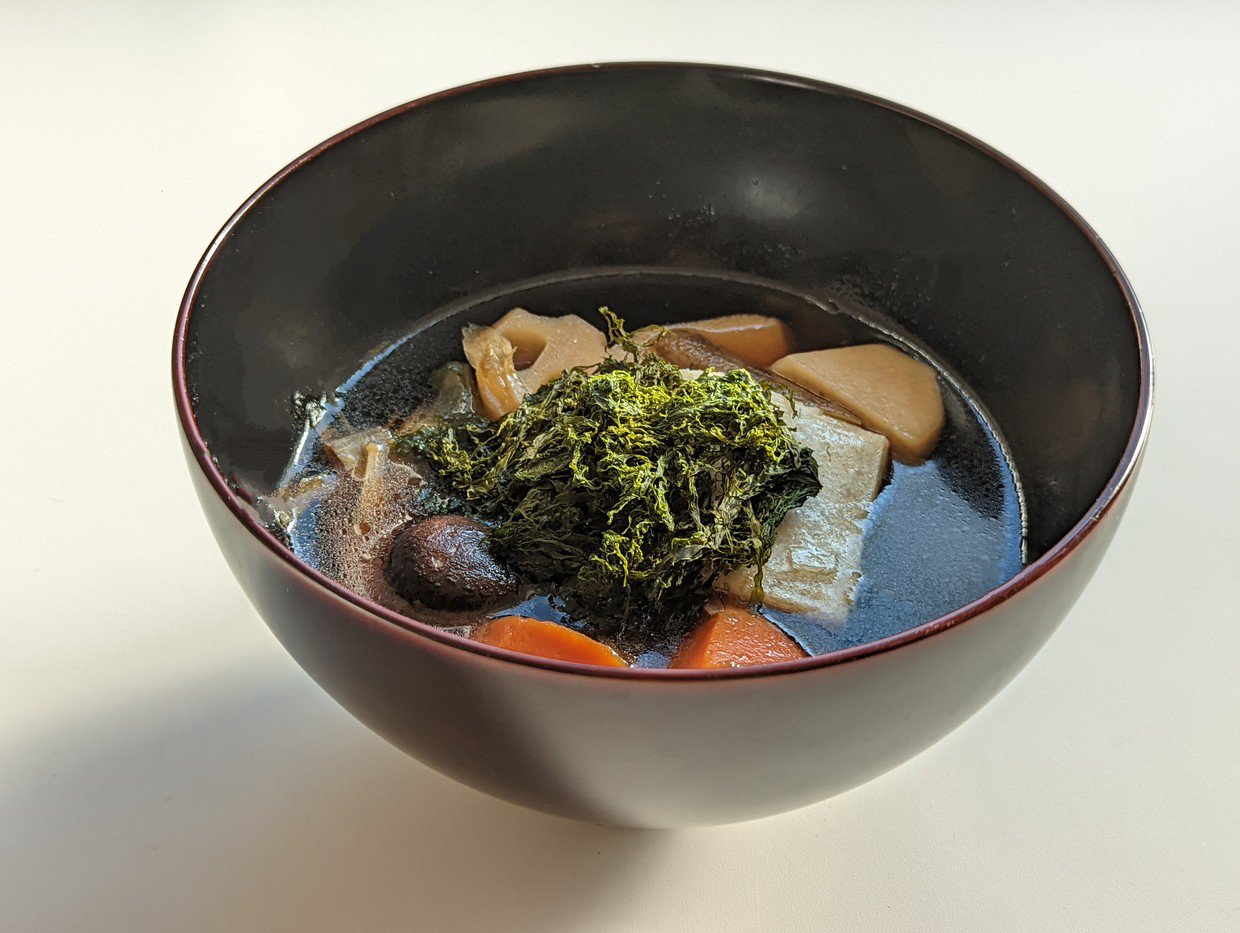
[Grilled Habanori Ozoni]
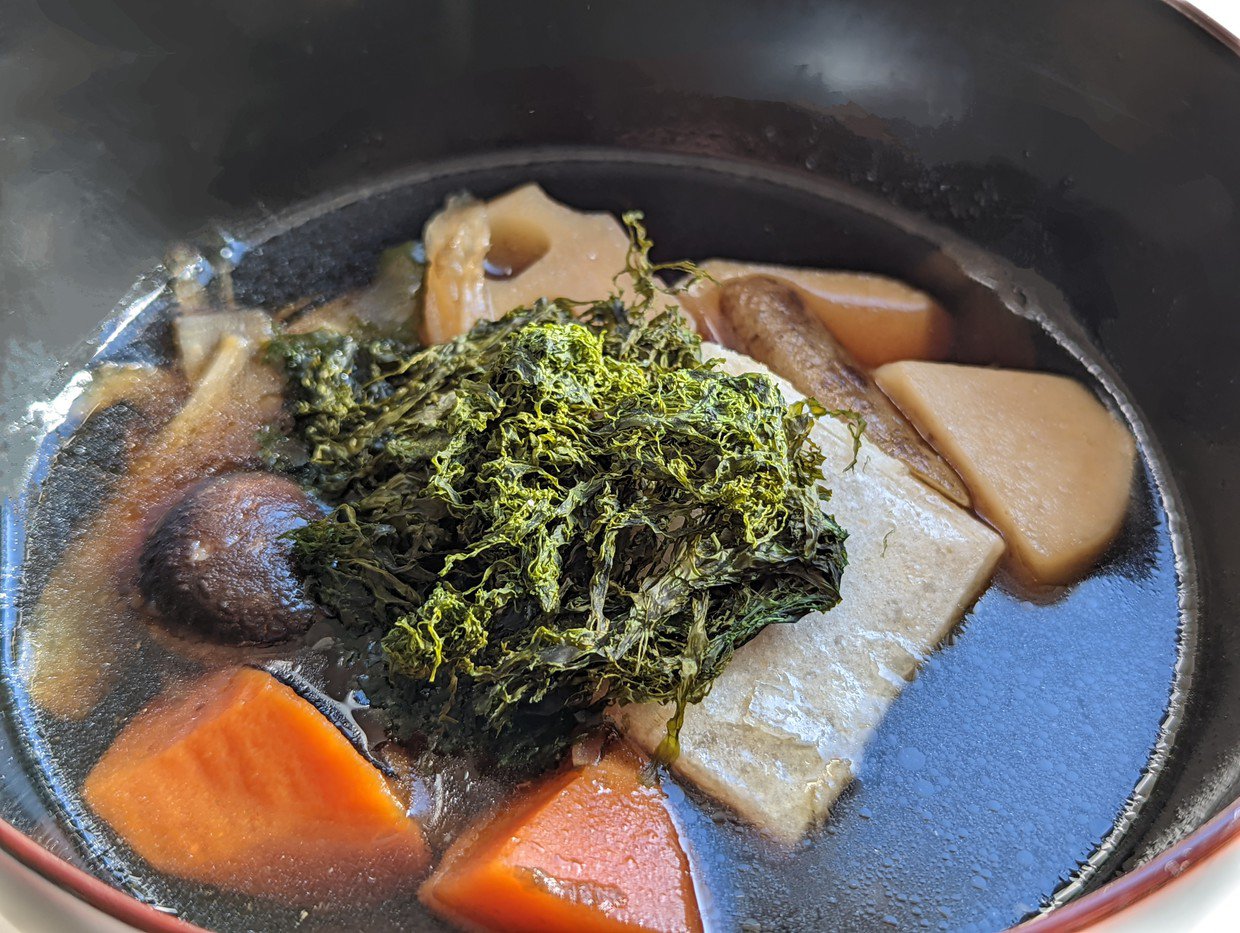
You get that unique aroma of Habanori, and it's both chewy and crispy. Goes perfectly with steamed oyster butter with six kinds of seaweed.
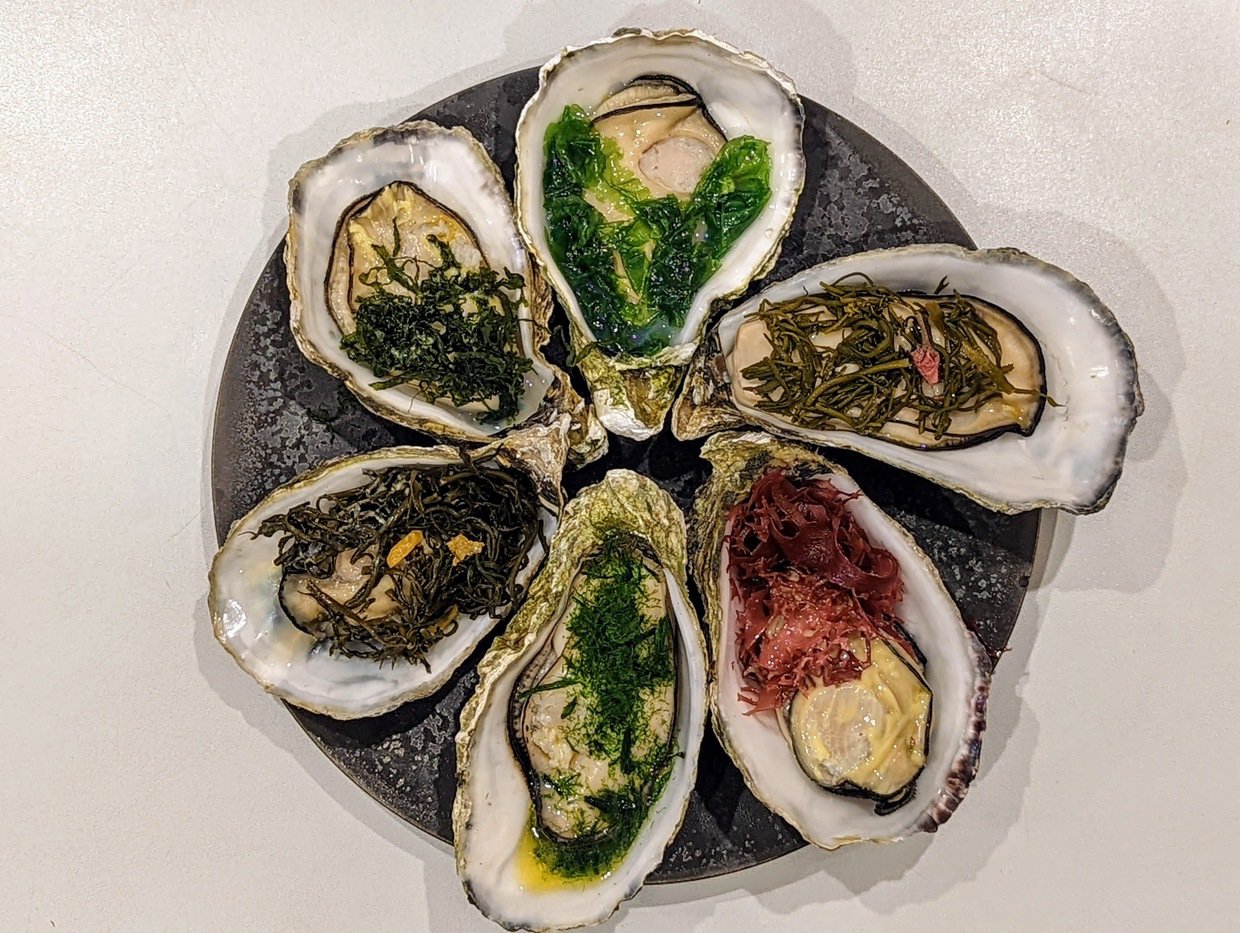
Six kinds of seaweed and eat steamed oyster butter
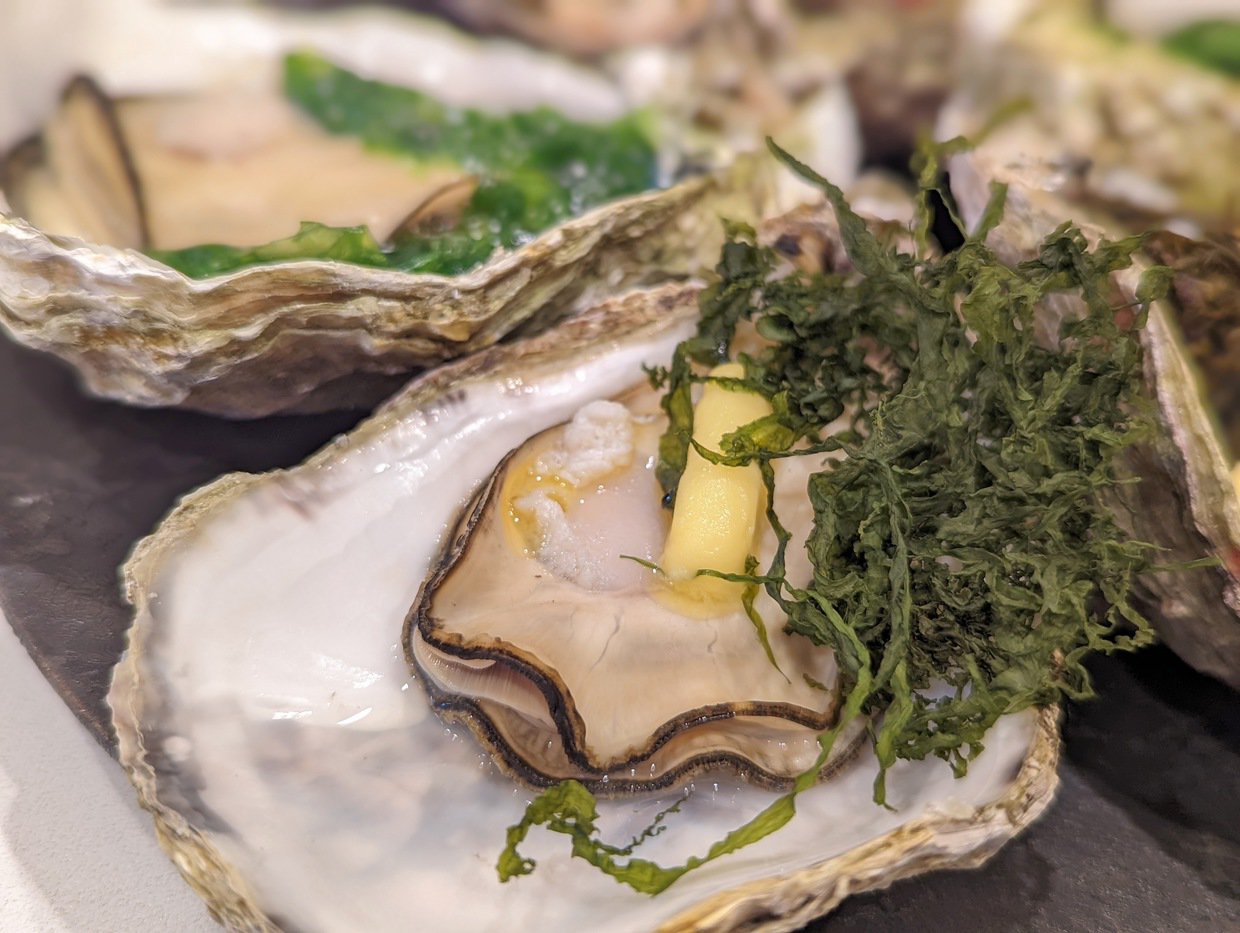
[Habanori with Butter and Steamed Oysters]
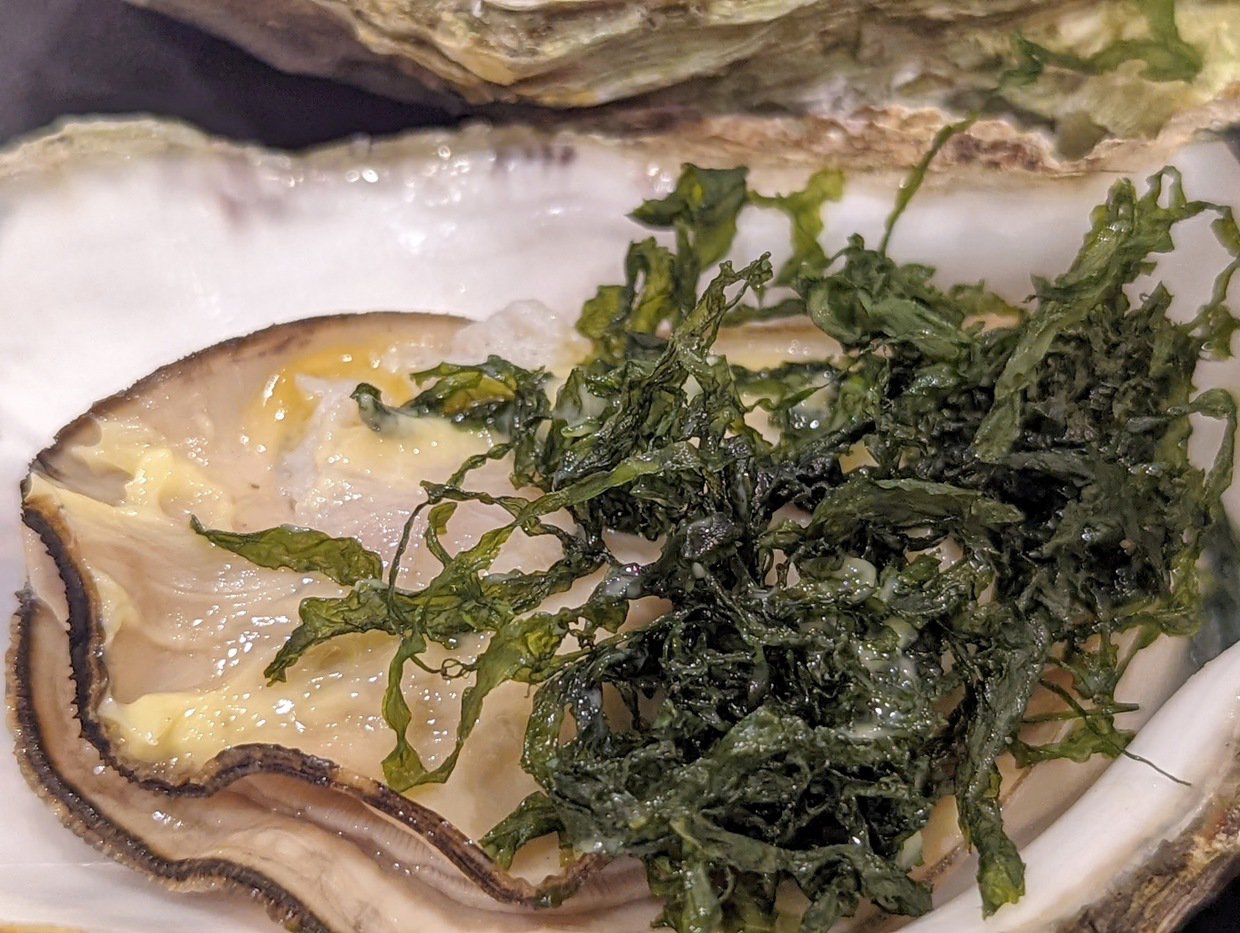 The distinct scent of Habanori goes so well with oyster butter. Mix 'em up real good for that flavor explosion.
The distinct scent of Habanori goes so well with oyster butter. Mix 'em up real good for that flavor explosion.
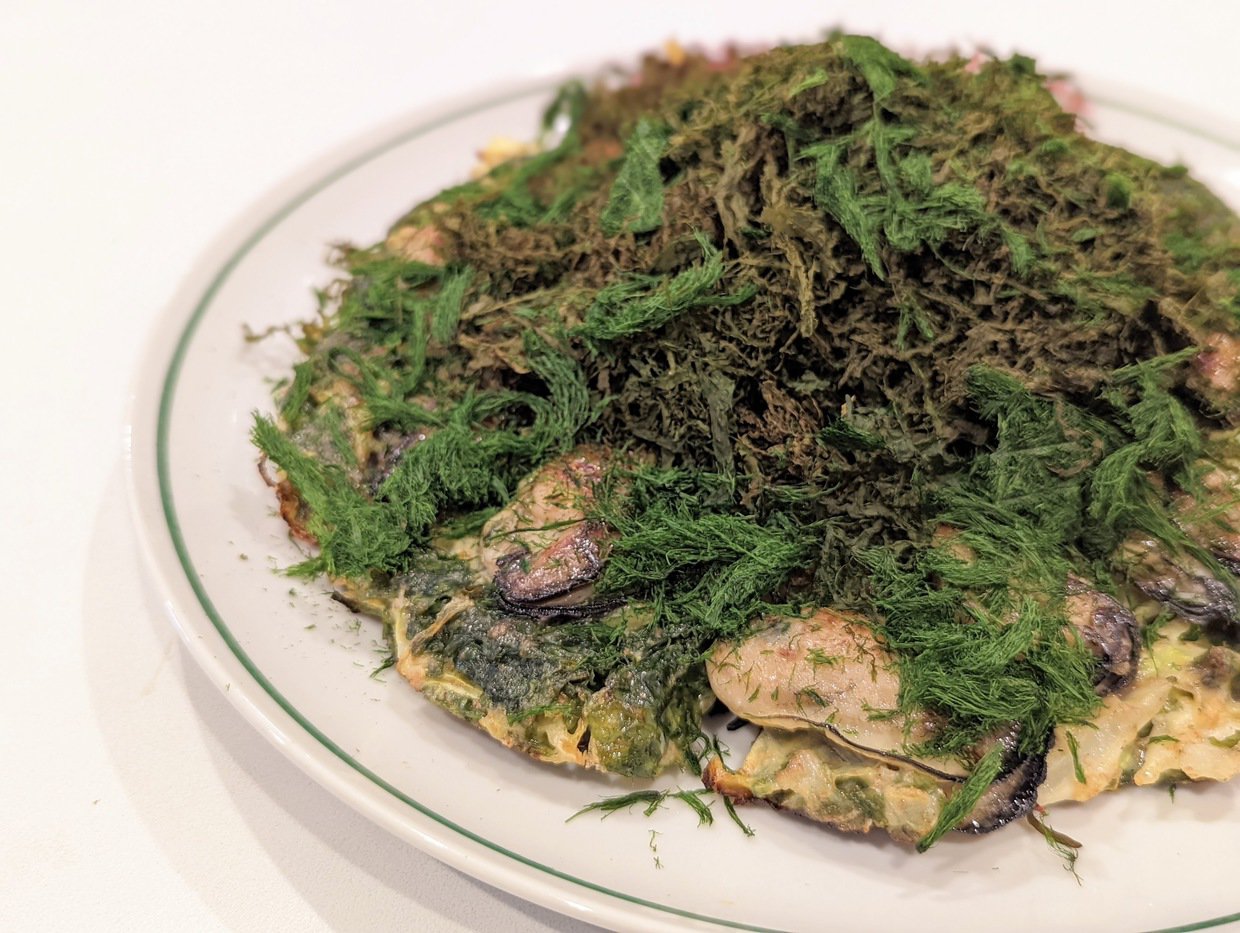
[Seaweed and Oyster Okonomiyaki]
Using Dried Suji-Aonori, Grilled Habanori, and Atsuba Aosa together makes for a delicious seaweed combo. There's a whole world of tasty seaweed when you eat them together.
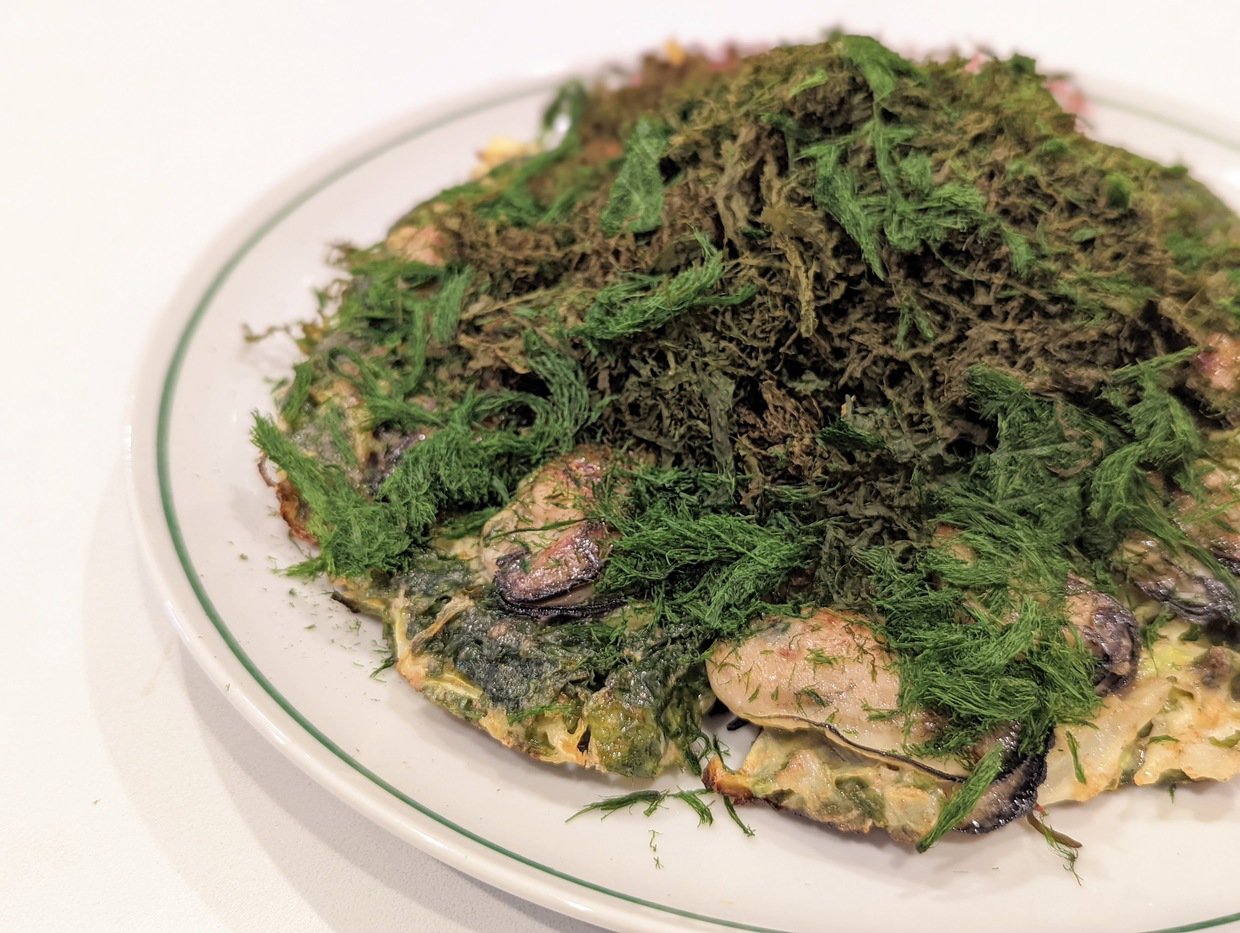
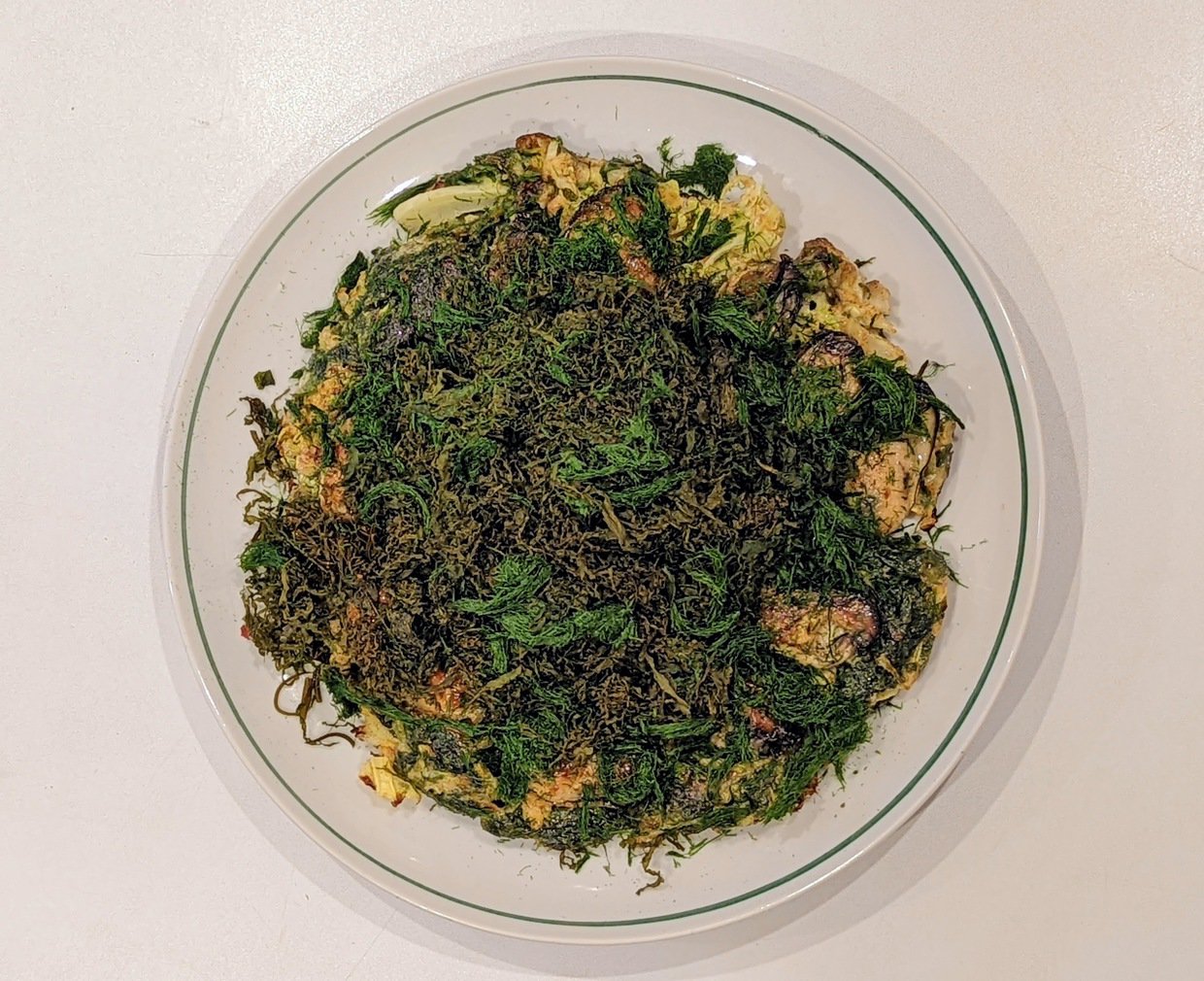
For ages, there's been this thing called blended nori, where different seaweeds are mixed together. Mixing Suji-Aonori and Habanori, two unique and precious seaweeds, creates a mouthwatering flavor that tantalizes your nose and taste buds.
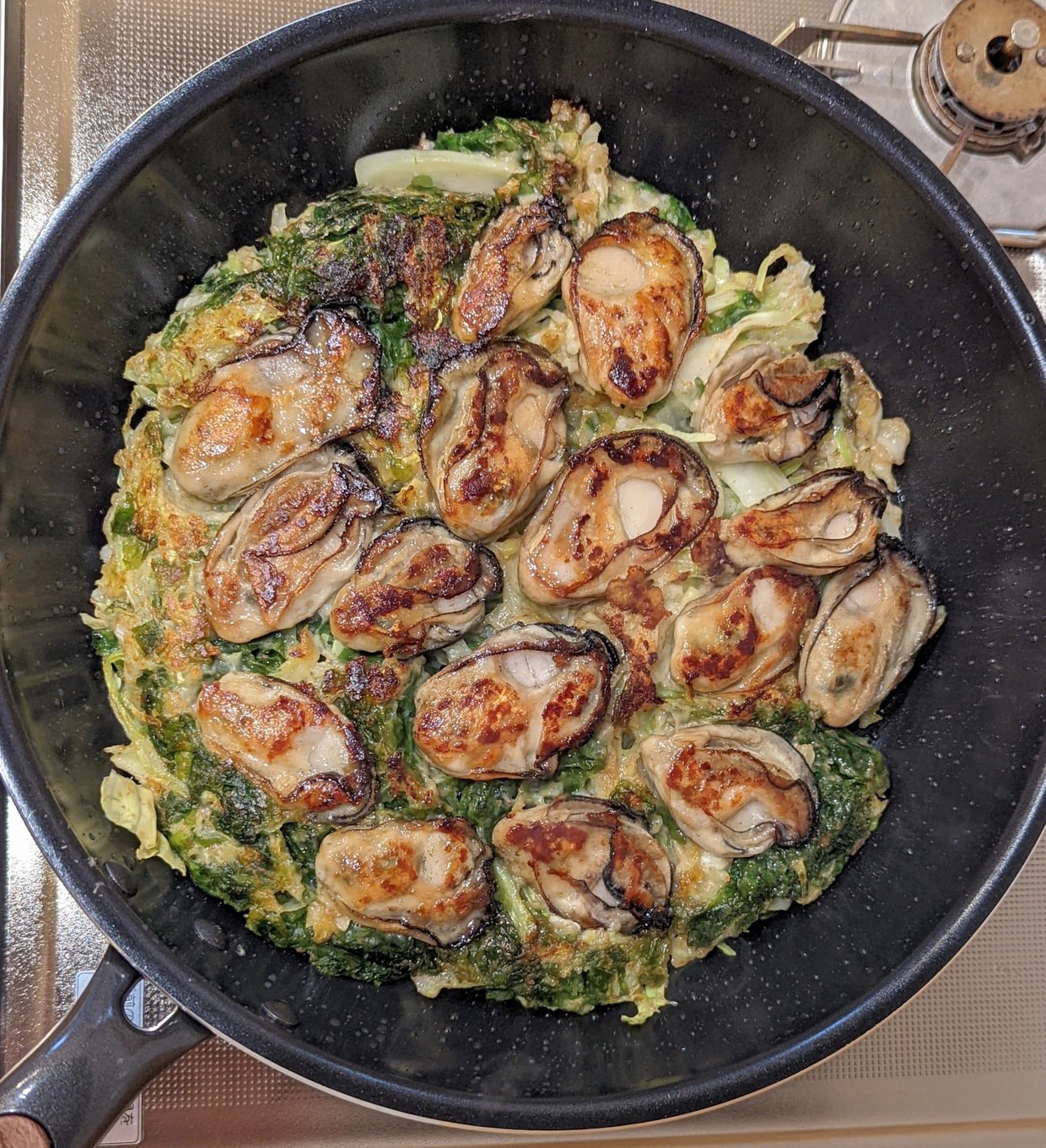
And that's not all. You know, oysters are like flavor bombs, and using chewy, slightly bitter atsuba aosa in the batter enhances the flavor of each ingredient.
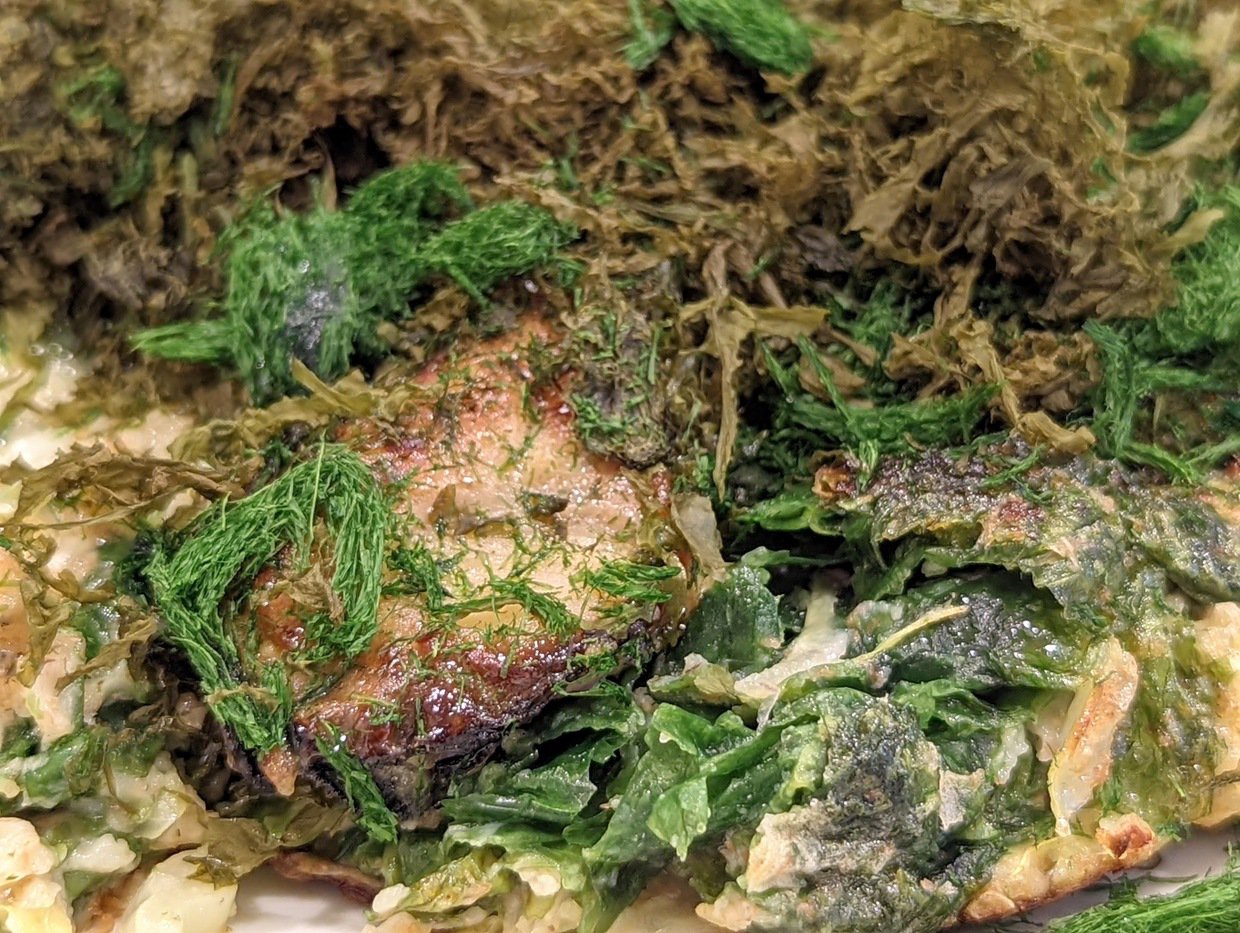
In a lightly oiled frying pan, line up the oysters and pour the main batter of okonomiyaki, mainly made of atsuba aosa and cabbage, over them.
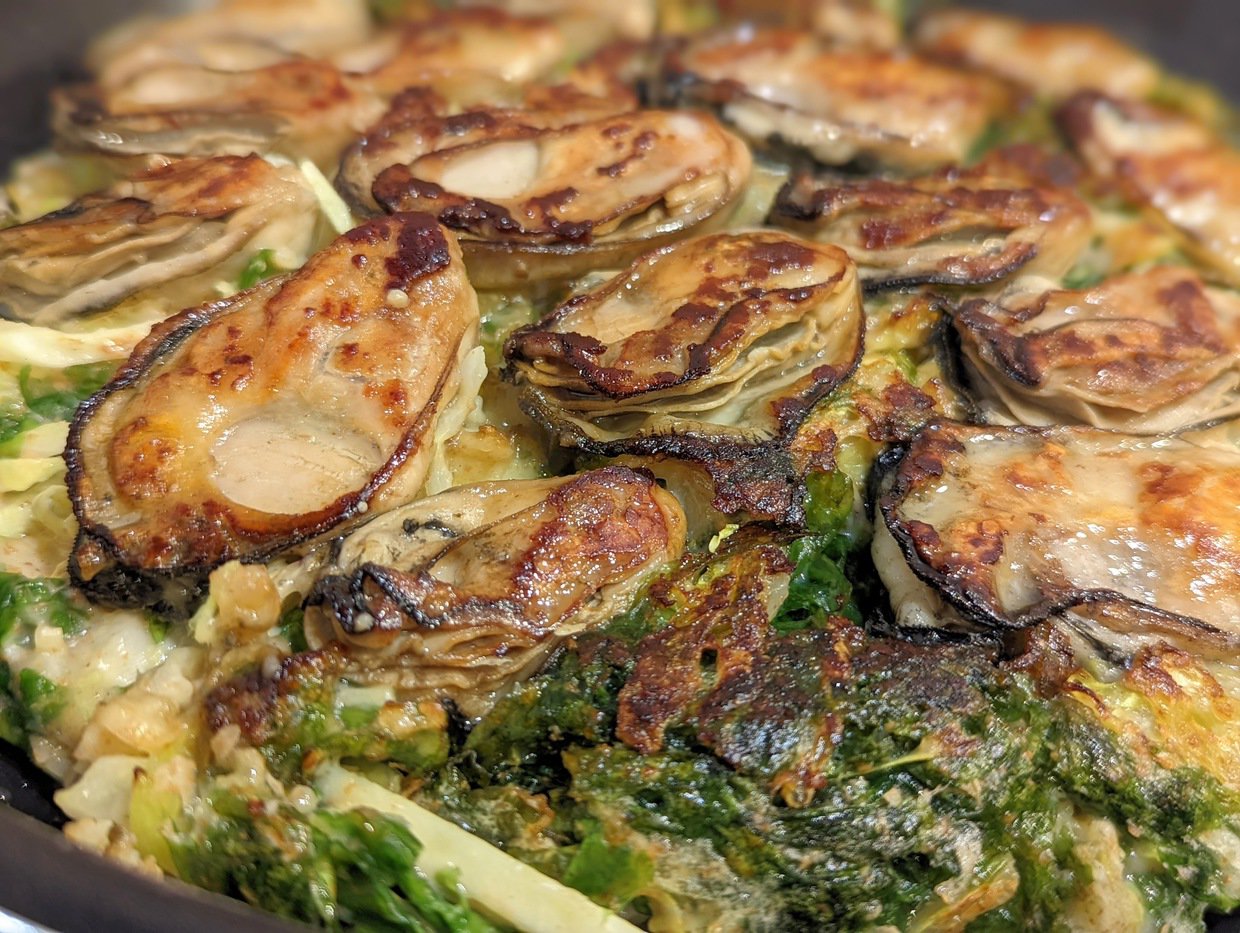
Once the oysters have a nice sear, flip them over and top generously with grilled Habanori and dried Suji-Aonori.
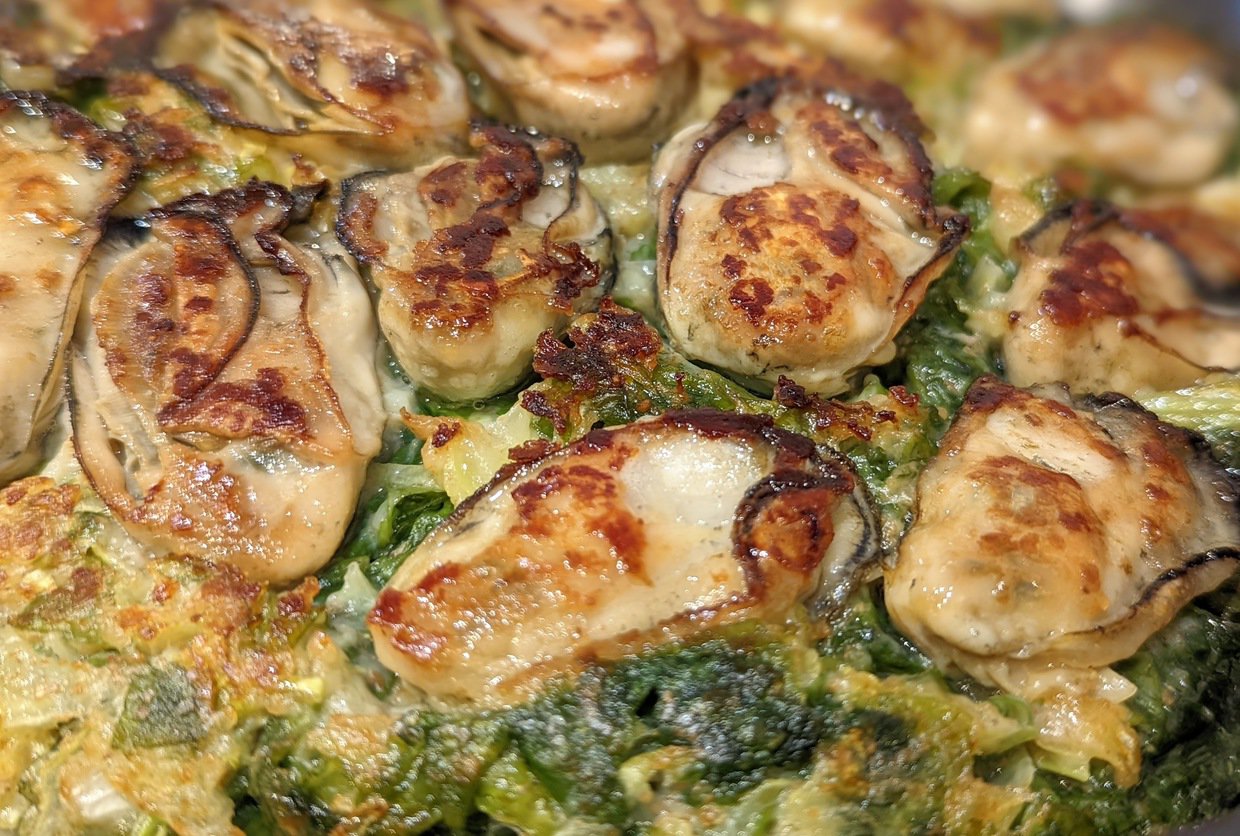
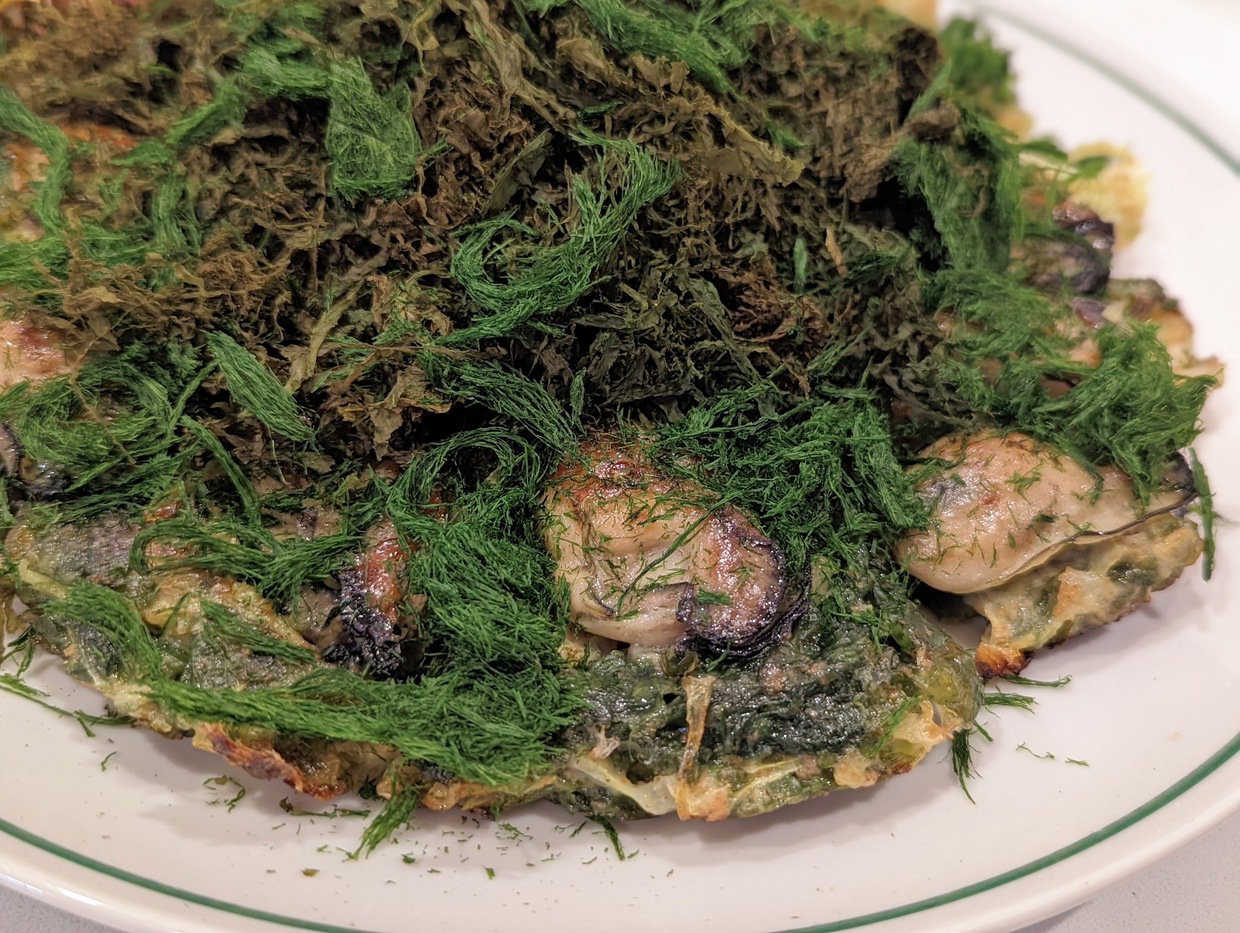
Voila!
No need for seasoning or spices. Each seaweed plays its part and balances everything out.
-------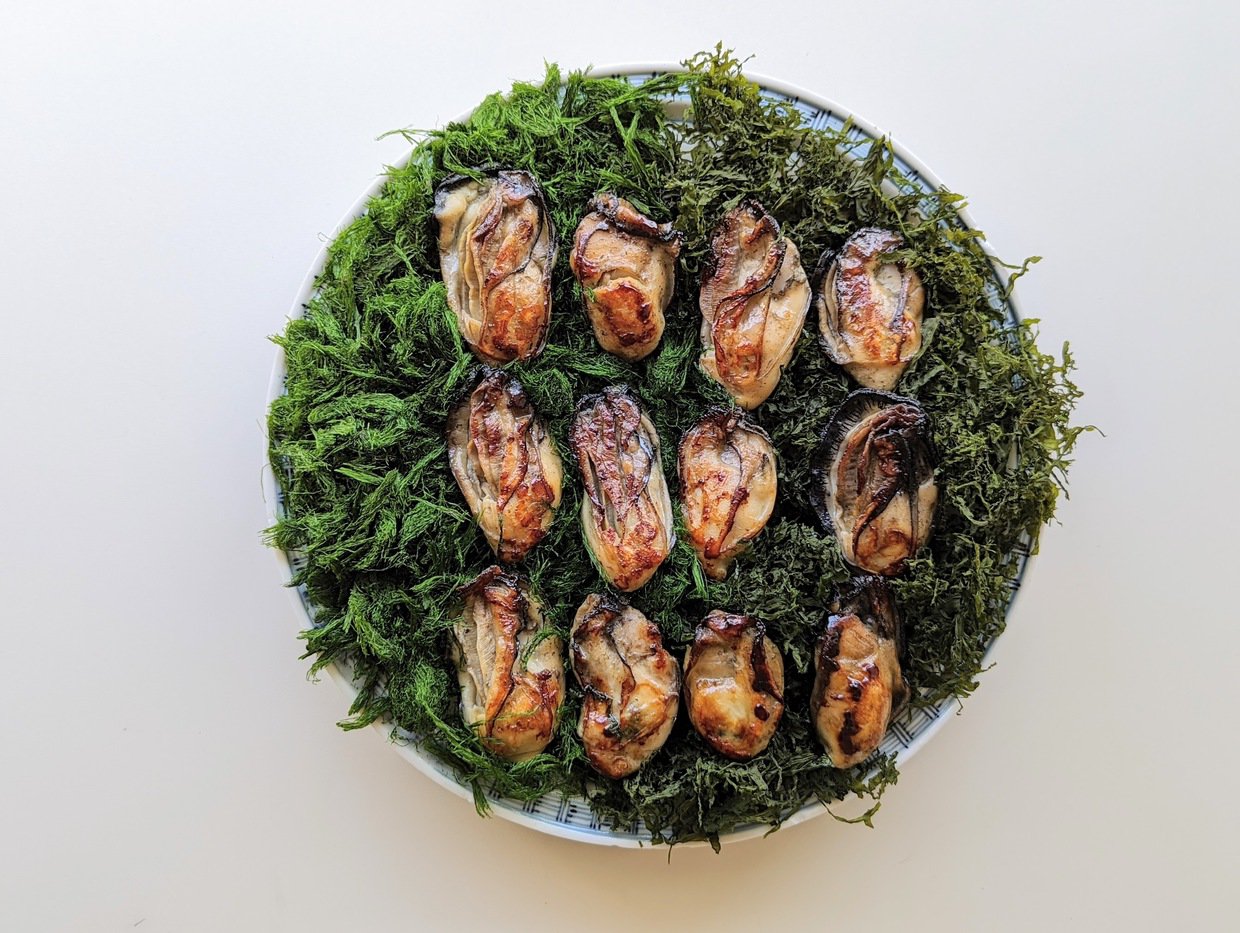
Oysters are delicious on their own, but they're even better with seaweed.
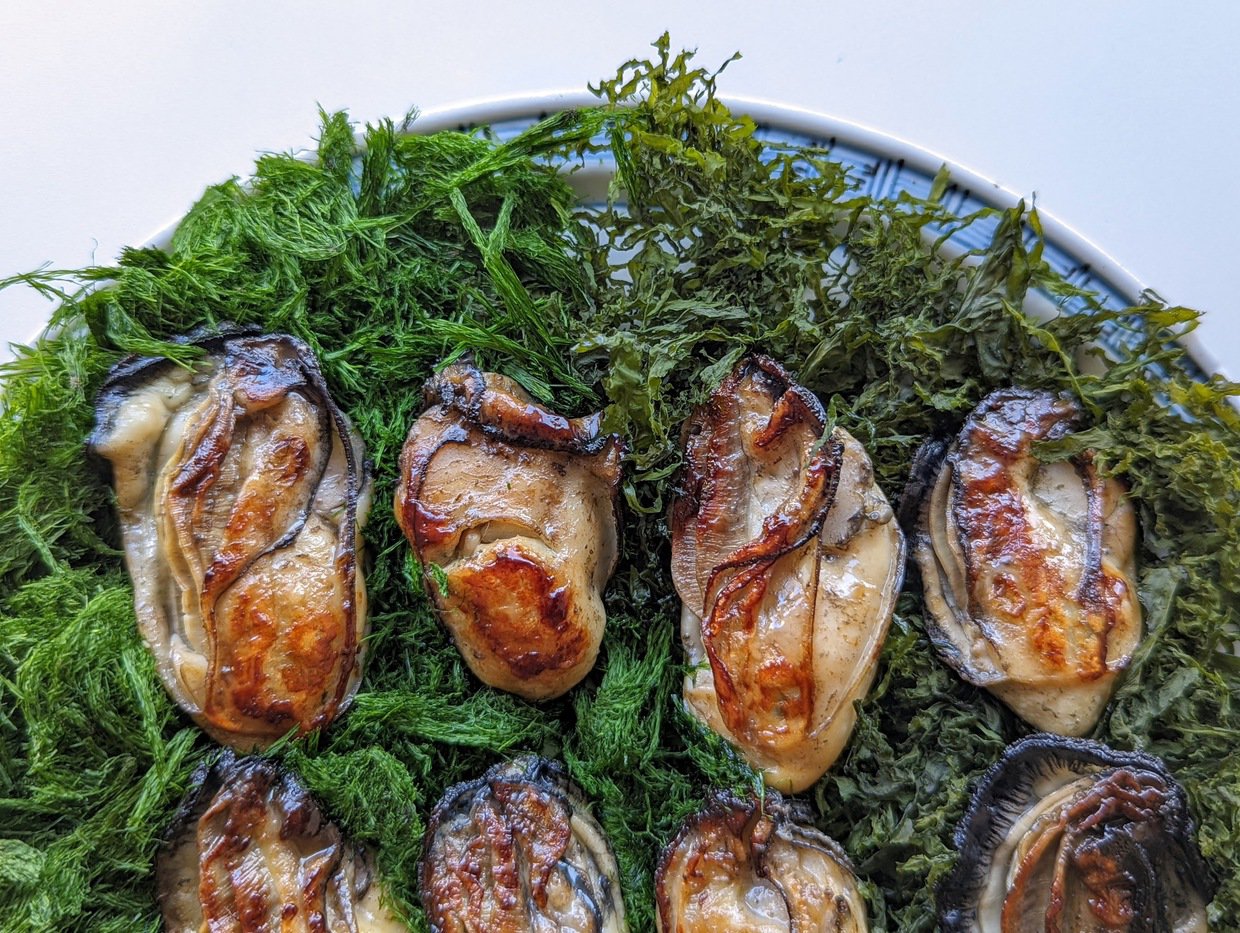
[Oysters x Seaweed]
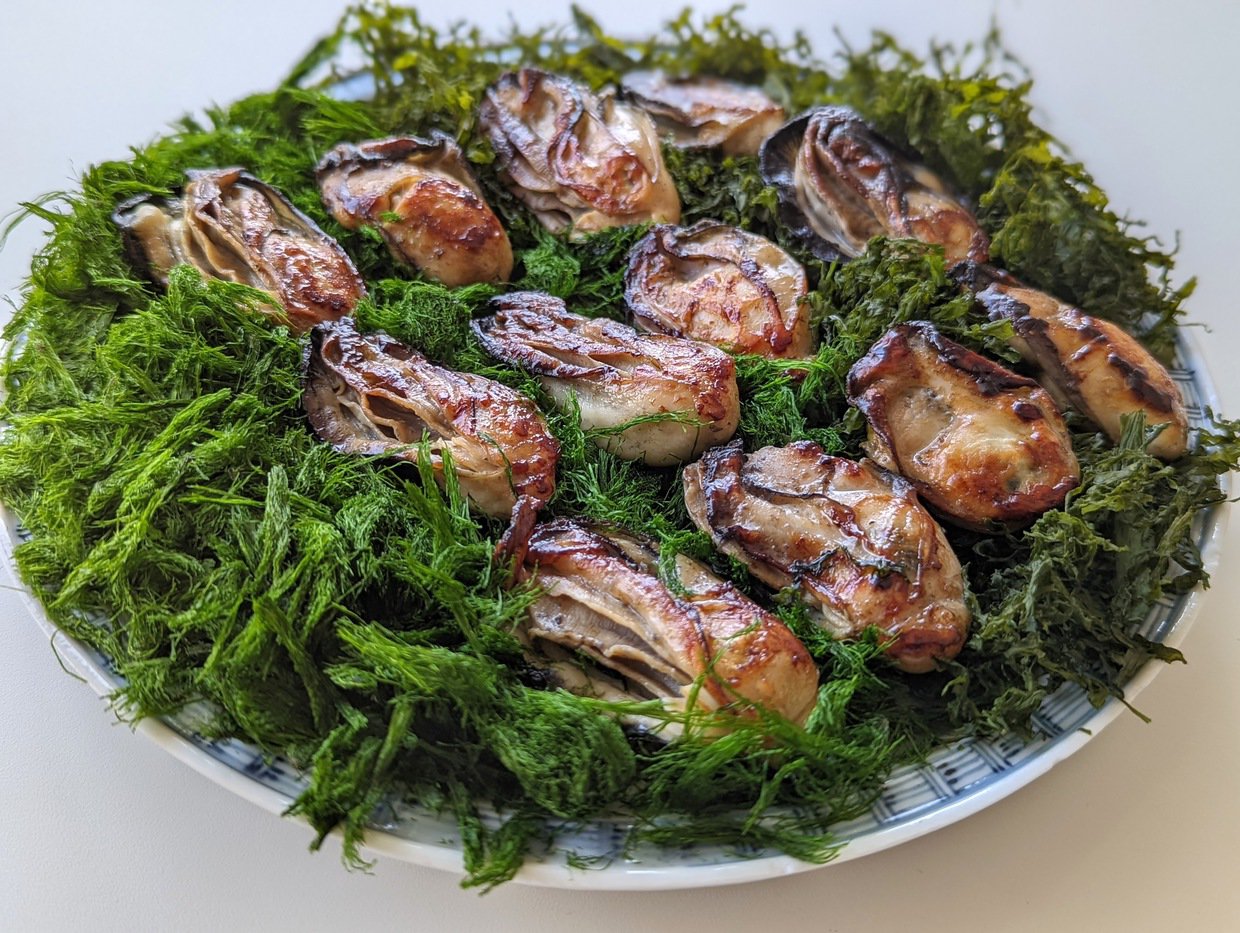
For example, just grilling oysters is tasty, but placing them on a soft bed of seaweed and wrapping them up is even better.
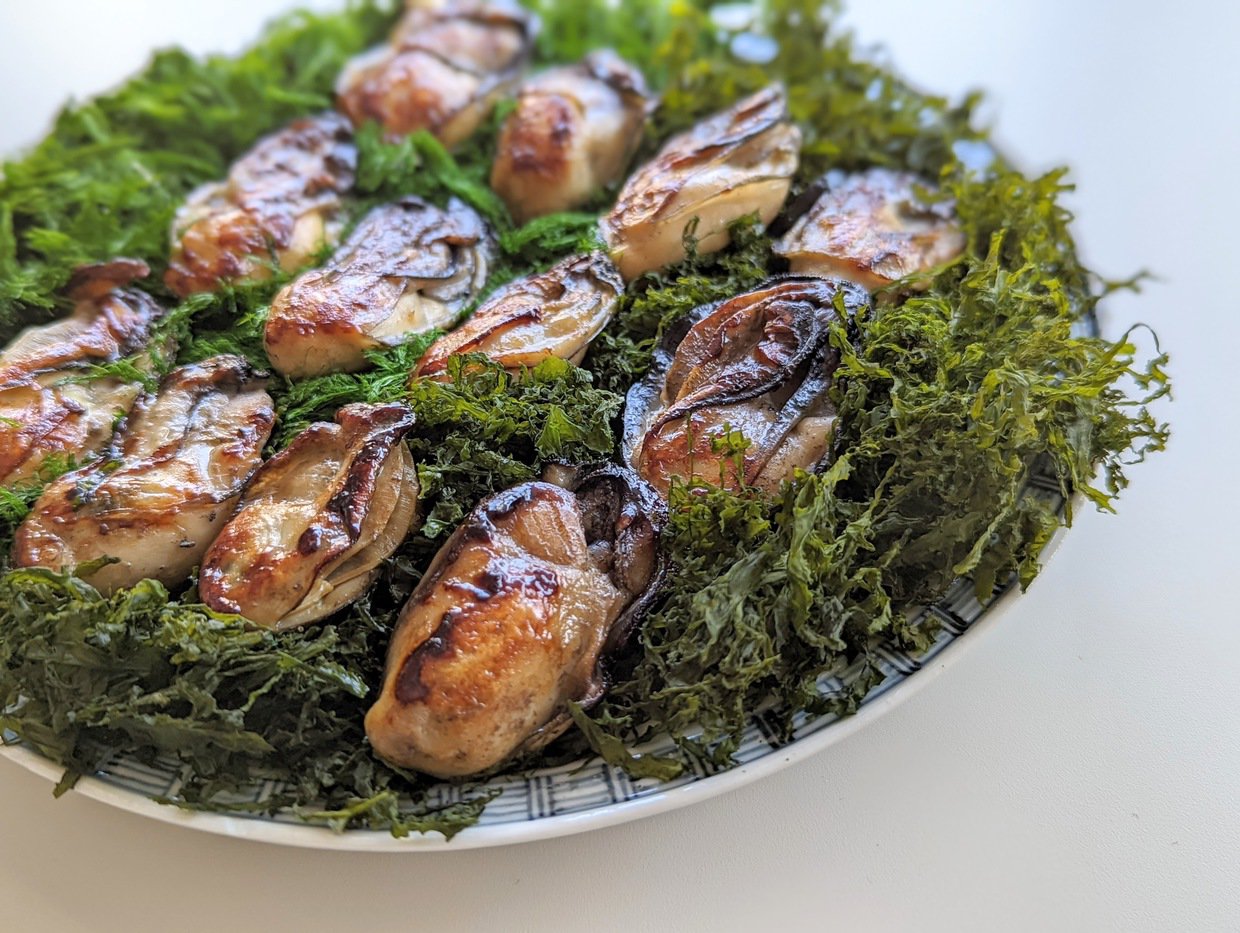
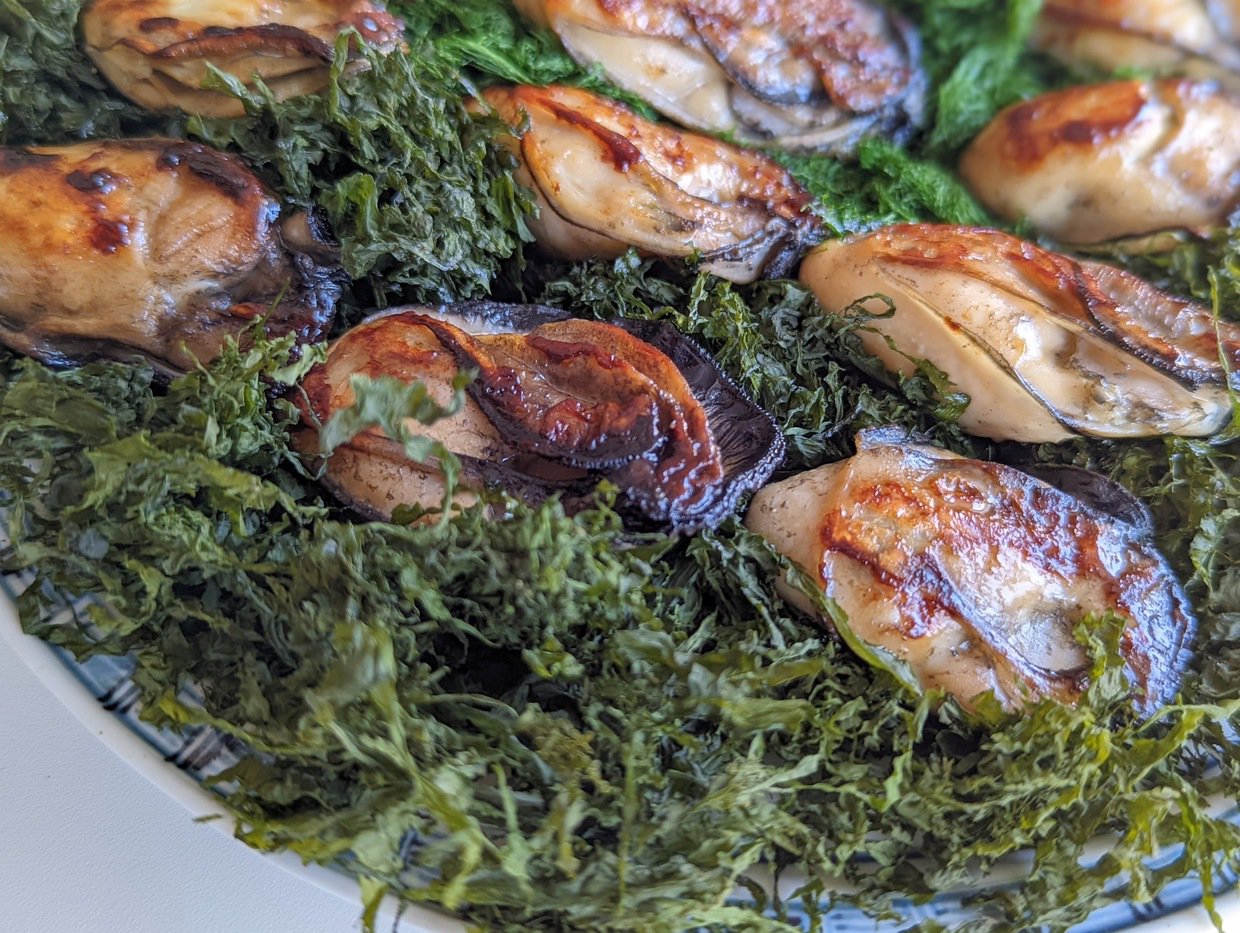
Habanori might be pricey, but it's way tastier when you have a big chunk instead of nibbling on bits.
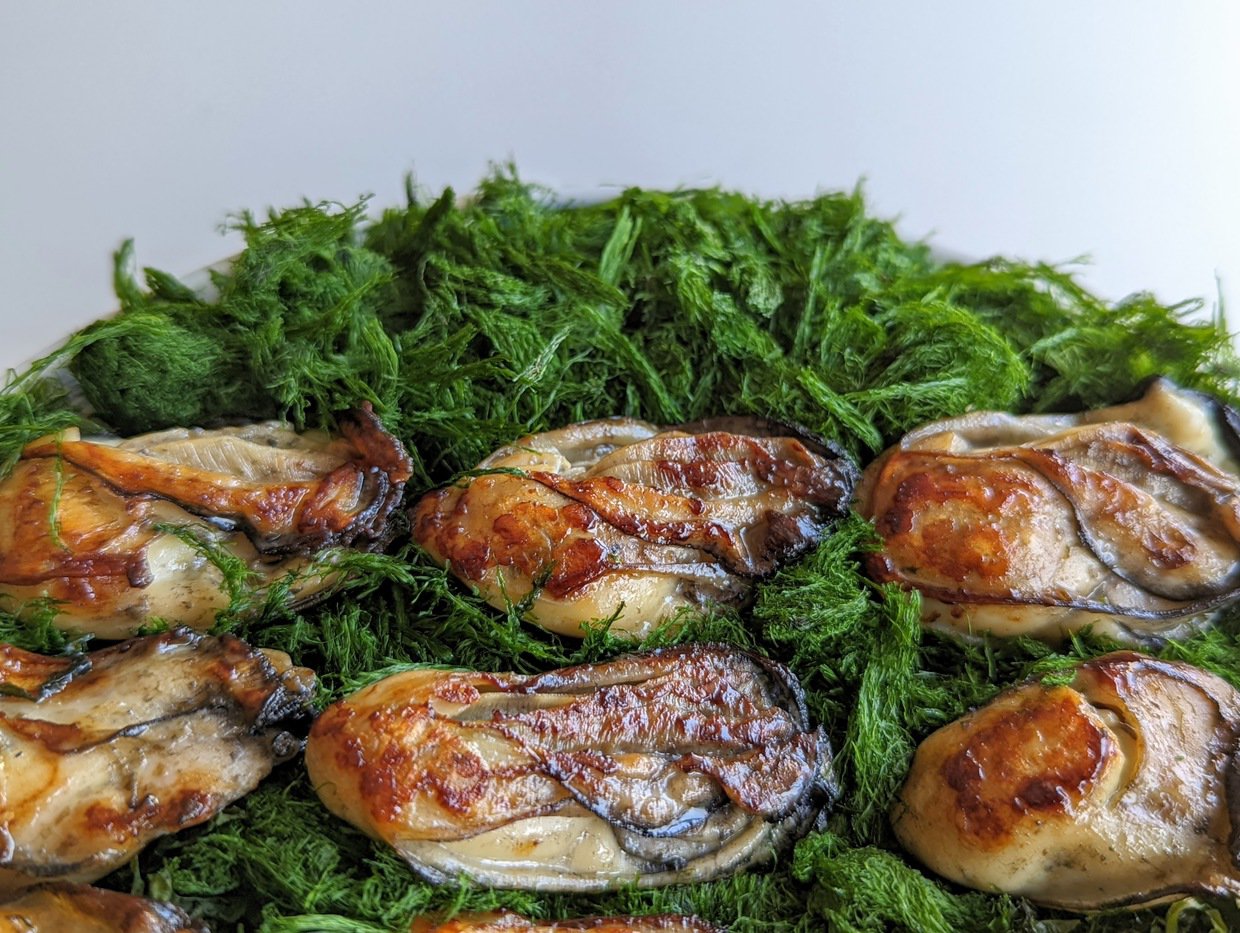
And adding Suji-Aonori is great whether you have a little or a lot.
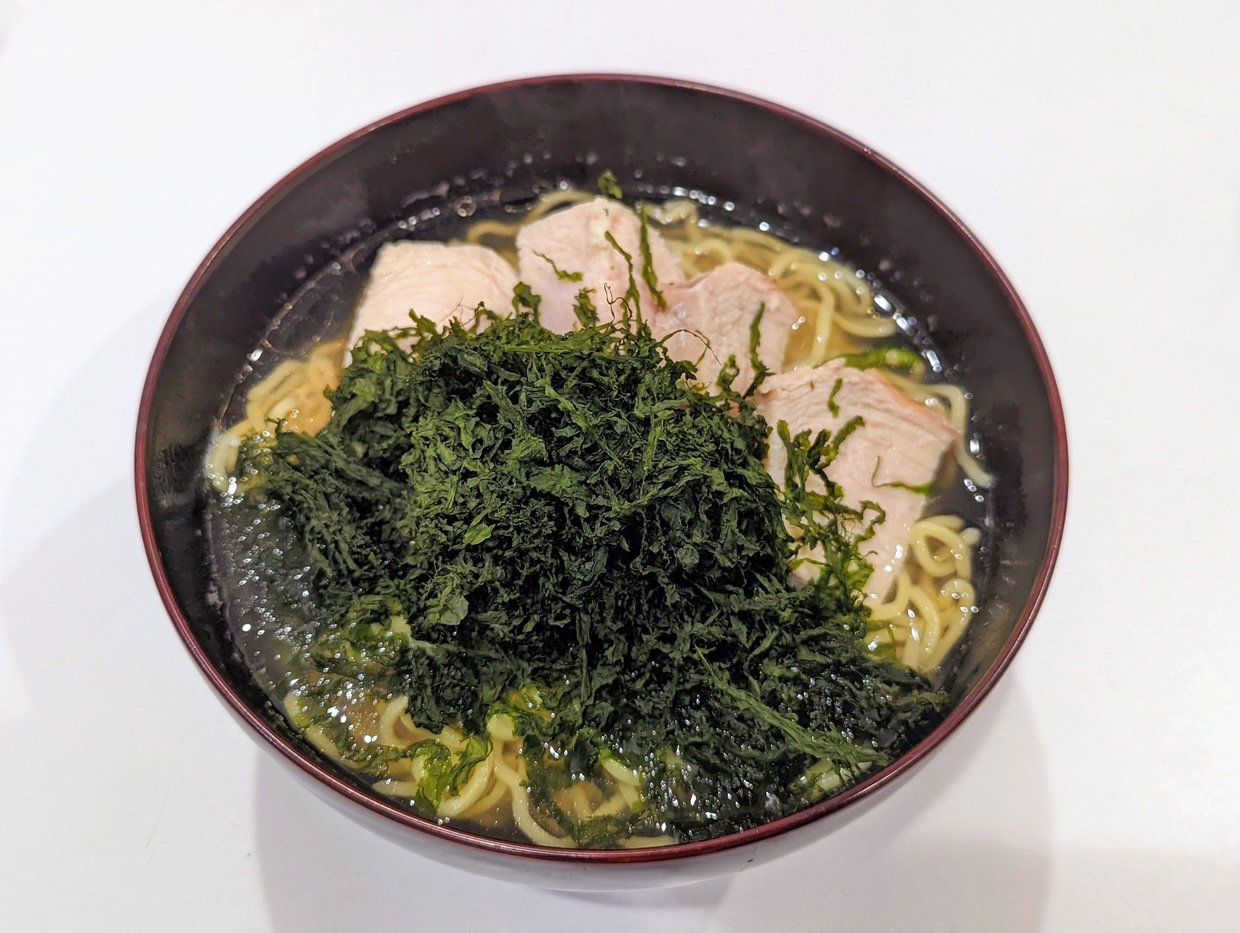
[Grilled Habanori Chicken Salt Ramen]
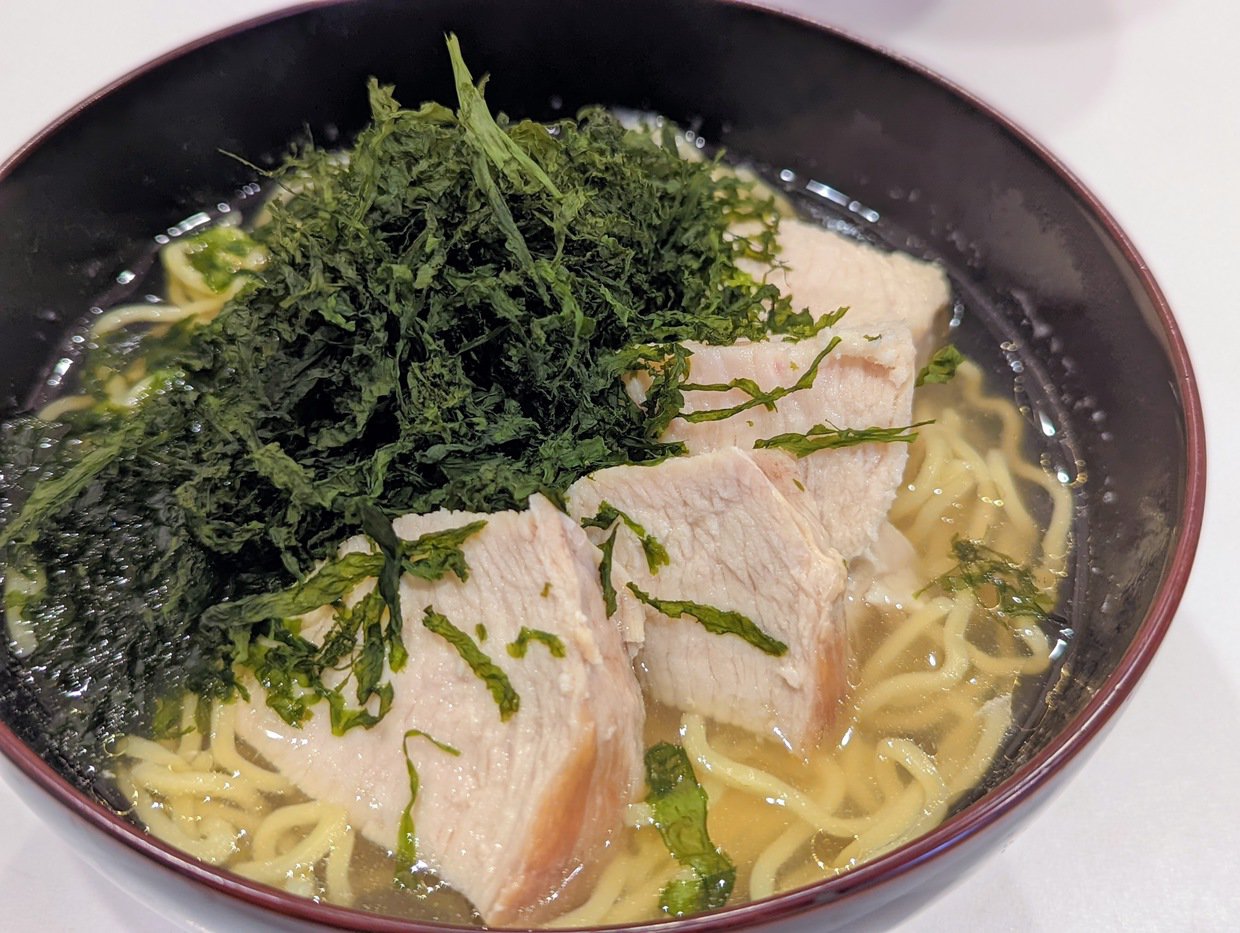
I'd love for some ramen joints to use this in one of their dishes.
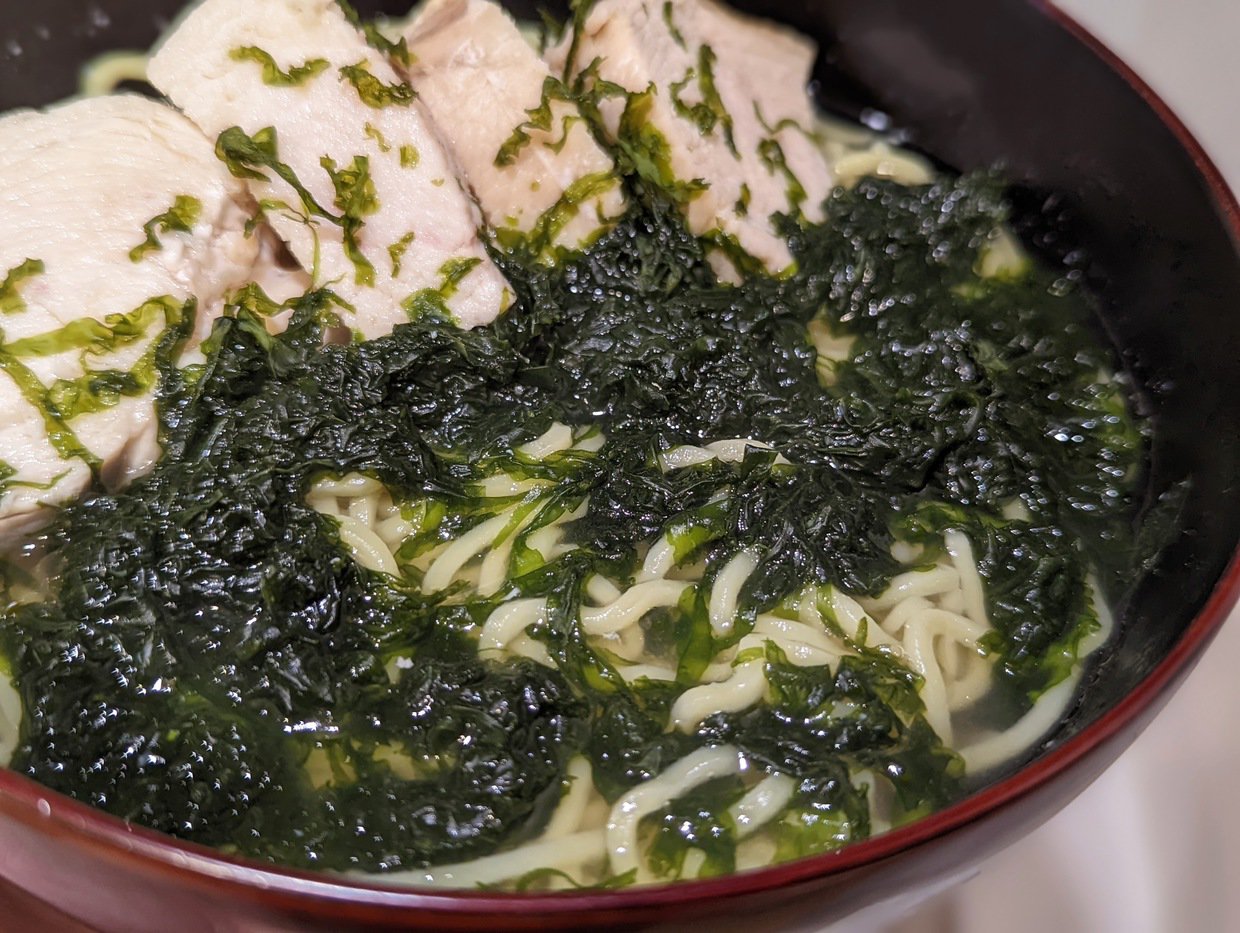
The texture when it soaks up the broth is pairs perfectly with the texture of the noodles.
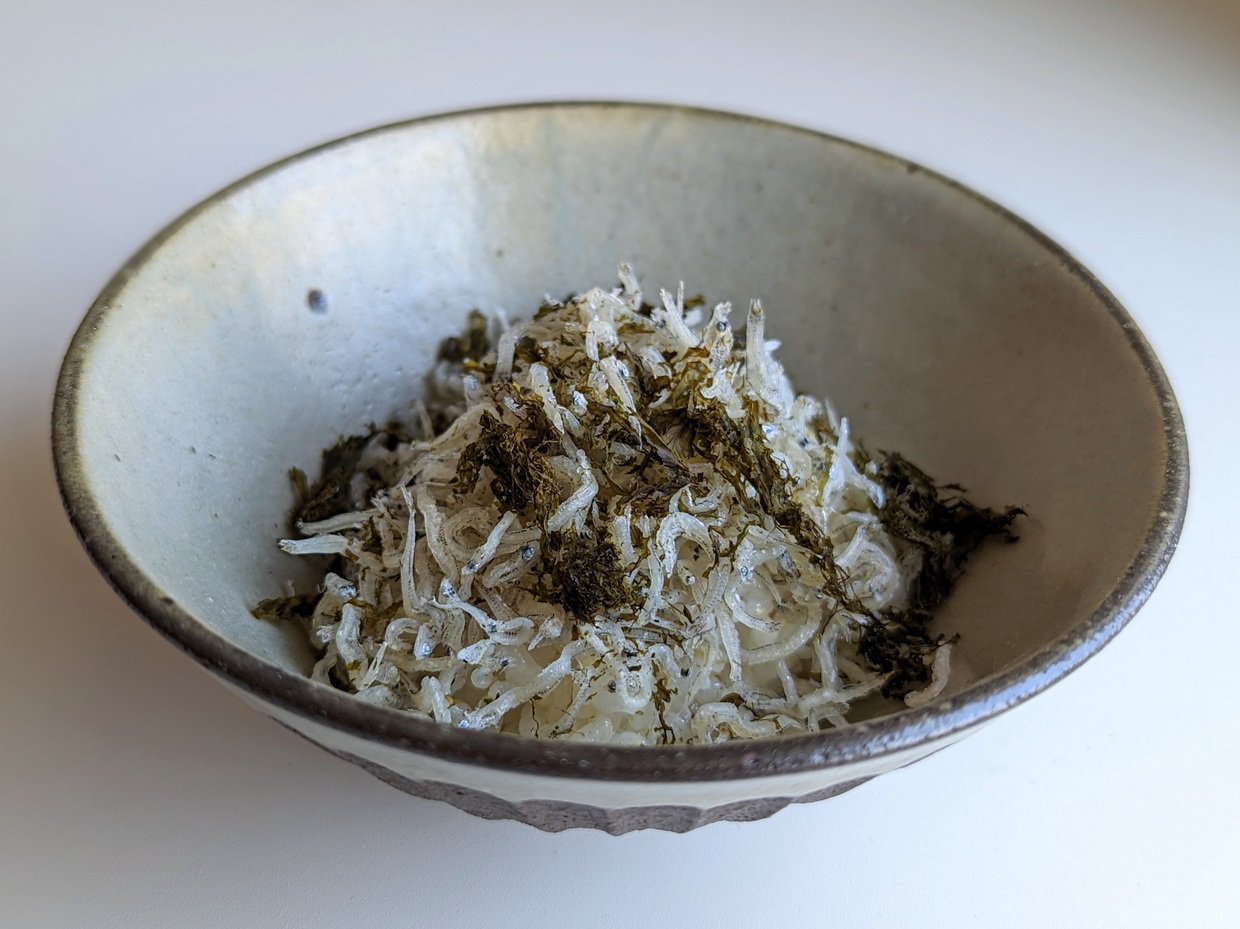
[Grilled Habanori and Shirasu Rice]
If you're having it over rice with grilled Habanori, it's gotta be good with kamaage shirasu, but it goes even better with chirimen too.
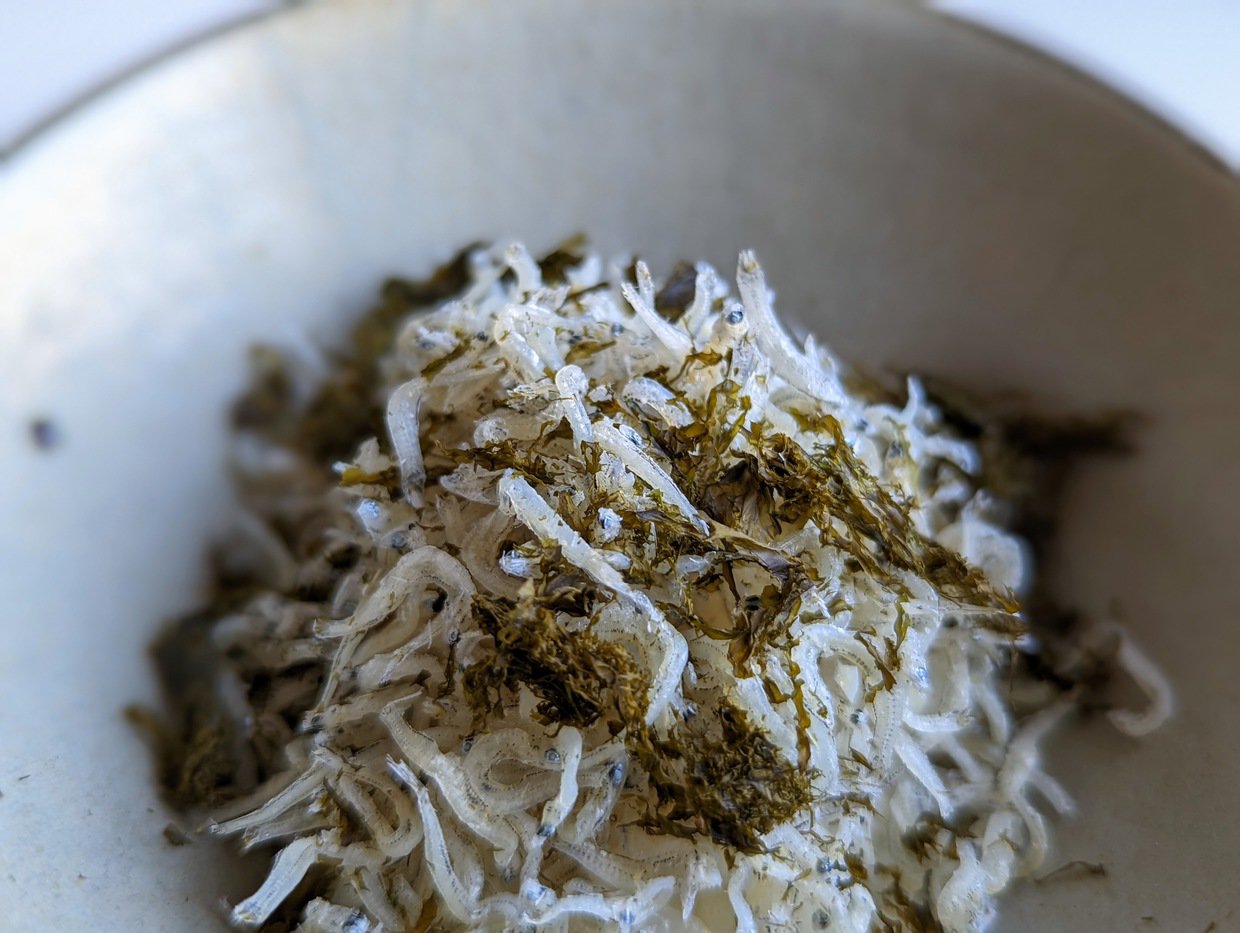
Isn't food amazing ?
Daisuke Okada
Born in 1979 / Sushi artisan and Sushi chef.
At the age of 18, he embarked on a journey into the world of food, dedicating himself to mastering the art of sushi. By the age of 24, he had gained enough experience and expertise to venture into independent sushi craftsmanship.
In 2008, he founded "Sumeshiya," a sushi restaurant located in Chuo Ward, Tokyo, operating on a reservation-only basis, catering to one group per day. His establishment quickly became a topic of discussion among food enthusiasts.
Subsequently, in 2016, he relocated his restaurant from Asakusabashi to Edogawabashi in Bunkyo Ward. Over the years, Okada has continuously expanded the possibilities of being a sushi artisan, participating in various projects such as serving as a model for a sushi manga titled "L’Art du Sushi" in France and curating exhibitions related to tableware and culinary arts at the New National Museum of Art.
Furthermore, he has authored books such as "おすしやさんにいらっしゃい!Welcome to the Sushi Shop!" published by Iwasaki Shoten and "季節のおうち寿司 Seasonal Home Sushi" published by PHP Institute, showcasing his knowledge and passion for sushi cuisine.
